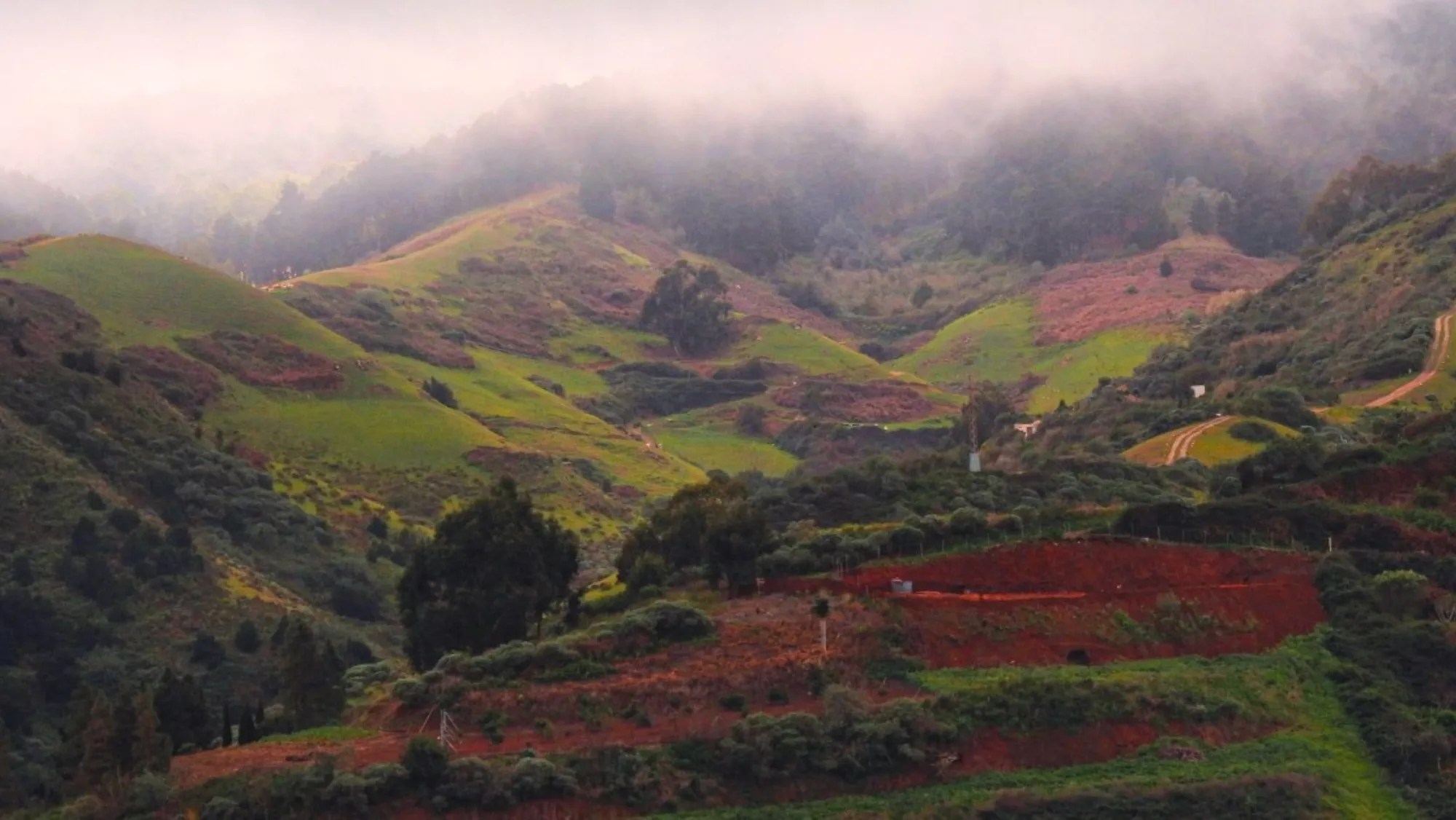
The island president, Rosa Dávila, emphasises that “Tenerife is responding to the phylloxera crisis with rigour, science, transparency, and coordination” to “protect our vineyards, our farmers, and the future of our wines”.
The Cabildo of Tenerife today highlighted the united action of all administrations (Cabildo, Government of the Canary Islands, State, municipalities, and the primary sector) and political parties to address the phylloxera outbreak on the island.
In this regard, the island president, Rosa Dávila, stressed during her speech that Tenerife “is responding to the phylloxera crisis with rigour, science, coordination, and transparency to protect our vineyards, our farmers, and the future of our wines”.
“With united action and political loyalty, we will preserve the wines of Tenerife, protect employment in the countryside, and ensure that the vine remains a symbol of the island’s identity,” the island president underscored.
During an extraordinary plenary session to inform about this matter, Dávila highlighted that “action is the hallmark of this mandate, and that is why we are leading the response to phylloxera in Tenerife from the very first minute, in collaboration with the Government of the Canary Islands, which holds the competences in plant health, and with the support of the State, municipalities, and the sector”.
In this context, Dávila recalled the measures currently underway to address this outbreak, both in collaboration with the Government of the Canary Islands and from the Cabildo of Tenerife itself, and outlined the institution’s roadmap for tackling this situation “where we have demonstrated Tenerife and the Canary Islands’ capacity for response”.
The island president indicated that, in addition to actions already taken, “there will be constant technical monitoring with updated reports open to viticulturists; a scientific advisory technical committee will be established for the Canary Islands involving the College of Agricultural Engineers of the Canary Islands, ULL, ULPGC, IPNA-CSIC, ICIA, DOP from all islands, GMR Canarias, where the evolution of this pest will be analysed, and control measures based on science will be proposed”.
Moreover, “the measures will be adjusted based on evolution, combining expert guidance with sensitivity to the sector, and we will request resources from the State to strengthen inspections and support the sector if the harvest is affected”.
The island president reiterated that this matter has been handled with complete transparency and a unified action from various administrations. “The Government of the Canary Islands, Cabildo, State, and the wine sector are working in the same direction: to protect our vineyards and our model,” Dávila asserted, reminding that positive cases reported “will be publicly available in the territorial viewer created by the Government and the Cabildo”.
Appealing to this unity, the island president requested the PSOE in the Cabildo “to join this collective action. Seeking political advantage during a crisis that we are all facing together is foolish: they will be left out of the solution”, although she also expressed gratitude for the support from the Socialist Group and other parties for the proposals put forward.
Furthermore, she reiterated that “we have deployed a rapid and frontal response against phylloxera from all administrations, with the sector and with experts, regardless of political colours. The collaboration has been exemplary.” “With united action and political loyalty, we will preserve the wines of Tenerife, protect employment in the countryside, and ensure that the vine continues to be a hallmark of the island’s identity,” concluded the island president.
For his part, the councillor for the Primary Sector and Animal Welfare, Valentín González, advocated for “an institutional agreement from the Cabildo of Tenerife on the prevention, control, and eradication of phylloxera, compensatory measures, and the creation of a Strategic Plan for the wine sector of Tenerife”.
“The threat posed by the presence of phylloxera requires coordinated, rigorous, and united action from all public institutions, social agents, and agricultural organisations with the aim of preserving the island’s vineyard and ensuring the sector’s viability,” the councillor asserted.
González confirmed that “we reaffirm our commitment to the protection of the Tenerife vineyard, the defence of the island’s agricultural and cultural identity, and the guarantee of a sustainable and competitive future for the wine sector through the implementation of a comprehensive Strategic Plan.”
Adopted Measures
During the plenary session, the island president reviewed over 20 actions and meetings undertaken so far to address the phylloxera outbreak since its detection on 30 July. “Since that moment, to accurately delineate the initially affected area, 2,901 technical surveys have been conducted (62% by GobCan, 27% by Cabildo, and 11% commissioned to Gesplan).”
“As of yesterday, following laboratory analysis, 60 locations have tested positive, mostly involving a single plant,” the president stated.
In this context, Dávila reiterated the total political coordination maintained on this matter: “I have kept constant contact with Regional Councillor Narvay Quintero to ensure a unified and agile response. And the island councillor for Agriculture, Valentín González, is in total coordination with the experts from the Agriculture Department of the Government of the Canary Islands and the sector,” she explained.
Additionally, “from the very first minute, the Cabildo of Tenerife has supported the Government of the Canary Islands in drafting regulatory and technical measures. Safety zones were delineated: the ‘infested zone’ with a minimum radius of 500 metres from the positive case and a ‘buffer zone’ of 1 kilometre around it.”
“Mandatory measures were adopted: emergency phytosanitary treatments (herbicides, insecticides) and destruction of infested and surrounding plants were implemented; and the movement of vine material and fresh grapes between islands and within areas of the island was prohibited, except under strict authorisation and transport guidelines from the Department,” Rosa Dávila stated.
In parallel, “20 meetings and encounters have been organised at all levels with technicians from the DOPs, agricultural extension agents, technicians from the Cabildo, the Chair of Wine Tourism, the Canary Islands Institute of Agro-food Quality (ICCA), the Canary Islands Institute of Agricultural Research (ICIA), the Ministry of Agriculture, the other DOPs in the Canary Islands, the Civil Guard, the College of Agricultural Engineers, and Grafcan.”
Furthermore, the Cabildo of Tenerife “has acted on three fronts: providing human and technical support, as we have made our agricultural services available for control and activated a mandate through GMR to reinforce surveys and the safe transport of grapes during the harvest.”
In total, “there are now more than 50 field agents, mostly agricultural engineers (government agents from the Canary Islands plus reinforcements from the Cabildo and reassignment of other active commitments to local resources).”
Dávila also recalled that “last Monday I chaired the Wine Table organised by the Cabildo to inform the entire sector about the current situation. A weekly meeting was agreed for the next few weeks to ensure comprehensive information and agree on measures. Informative talks and sessions with viticulturists are currently taking place: so far in El Sauzal, La Orotava, Los Realejos, Tegueste, Valle de Guerra, La Matanza, Güímar, Tacoronte, and El Tanque.”
In this regard, the island president did not want to overlook the role of the State in this problem. “Thanks to the request made from the Canary Islands, the Ministry of Agriculture has approved a Ministerial Order (Order 959/2025) that strengthens protection and prohibits the import and transit of vine fruits and seeds to the Canary Islands, except from pest-free countries and under inspection.”
However, Dávila reminded that “it is essential for the State to reinforce border controls, which fall under its competence. We requested this in a letter sent this week to the Minister of Agriculture.”
















